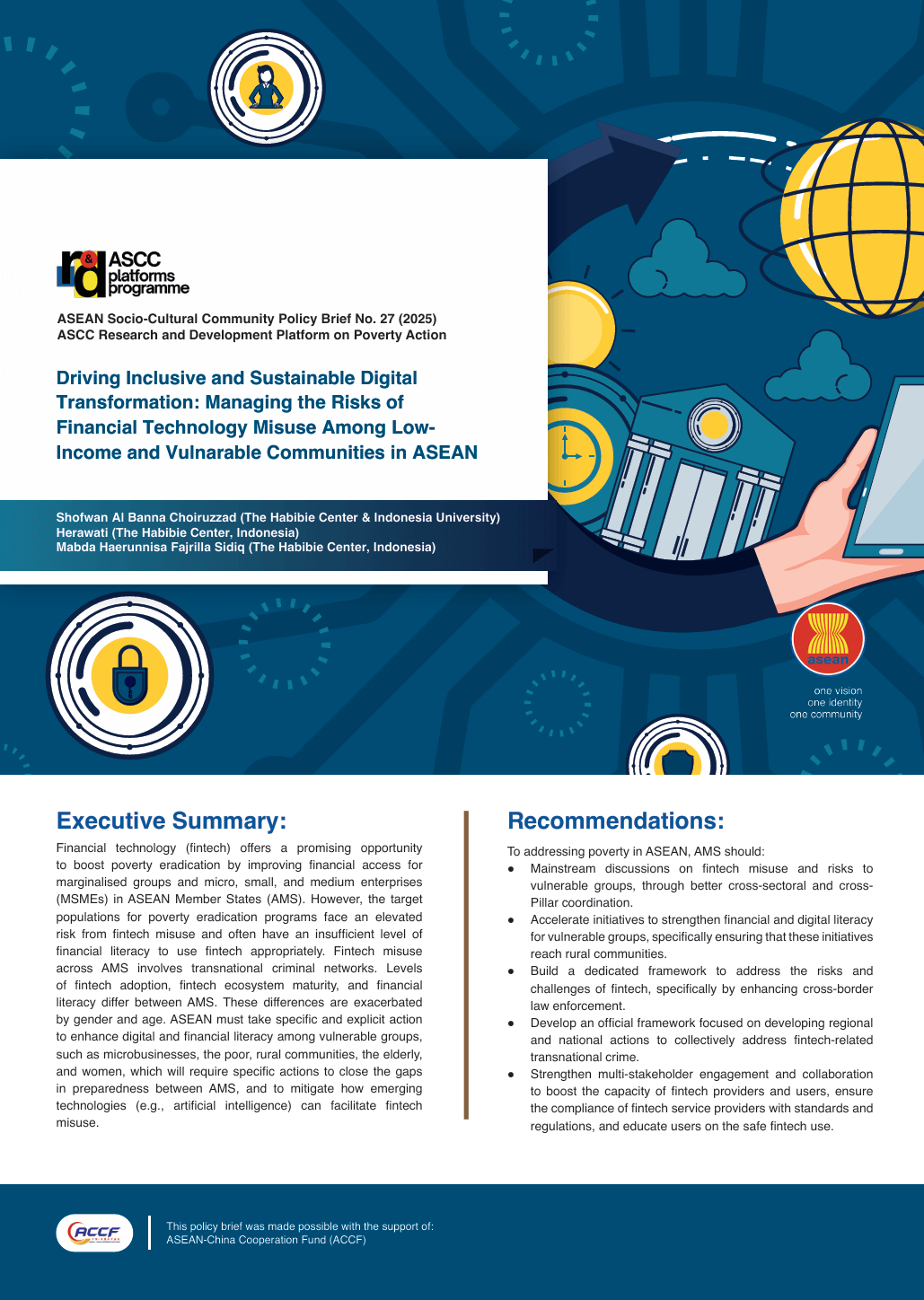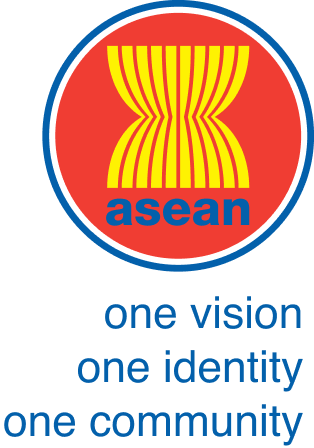

EXECUTIVE SUMMARY
Financial technology (fintech) offers a promising opportunity to boost poverty eradication by improving financial access for marginalised groups and micro, small, and medium enterprises (MSMEs) in ASEAN Member States (AMS). However, the target populations for poverty eradication programs face an elevated risk from fintech misuse and often have an insufficient level of financial literacy to use fintech appropriately. Fintech misuse across AMS involves transnational criminal networks. Levels of fintech adoption, fintech ecosystem maturity, and financial literacy differ between AMS. These differences are exacerbated by gender and age. ASEAN must take specific and explicit action to enhance digital and financial literacy among vulnerable groups, such as microbusinesses, the poor, rural communities, the elderly, and women, which will require specific actions to close the gaps in preparedness between AMS, and to mitigate how emerging technologies (e.g., artificial intelligence) can facilitate fintech misuse.
RECOMMENDATIONS
To addressing poverty in ASEAN, AMS should:
● Mainstream discussions on fintech misuse and risks to vulnerable groups, through better cross-sectoral and cross Pillar coordination.
● Accelerate initiatives to strengthen financial and digital literacy for vulnerable groups, specifically ensuring that these initiatives reach rural communities.
● Build a dedicated framework to address the risks and challenges of fintech, specifically by enhancing cross-border law enforcement.
● Develop an official framework focused on developing regional and national actions to collectively address fintech-related transnational crime.
● Strengthen multi-stakeholder engagement and collaboration to boost the capacity of fintech providers and users, ensure the compliance of fintech service providers with standards and regulations, and educate users on the safe fintech use.







